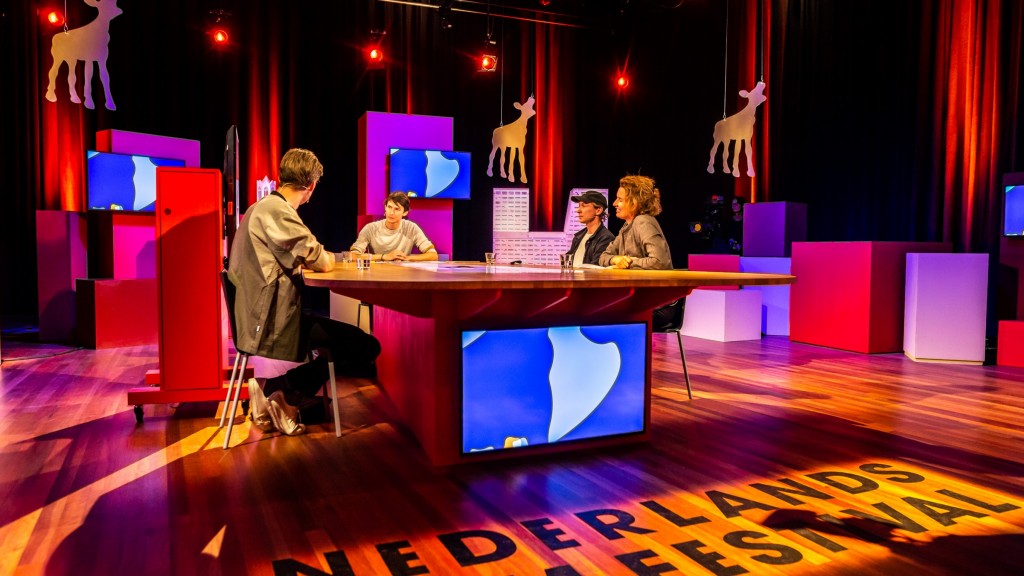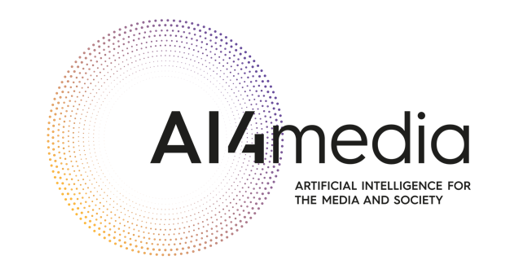Looking at AV archives through the lens of AI at the Netherlands Film Festival
Our relationship with audiovisual media is changing faster than ever before. In the past few decades cameras have become pervasive, we record and share more visual media than ever before and all this material comes to us increasingly under the control of computer algorithms. How do these code recipes change our perception and through it, our thinking? What challenges and opportunities do Artificial Intelligence techniques like Computer Vision and Machine Learning offer us for dealing with amounts of media that are larger than ever before? We had the pleasure to explore these questions and more during the Ways of Seeing Panel, which I moderated at the 2021 edition of the Netherlands Film Festival.
Our relationship with audiovisual media is changing faster than ever before. In the past few decades cameras have become pervasive, we record and share more visual media than ever before and all this material comes to us increasingly under the control of computer algorithms. How do these code recipes change our perception and through it, our thinking? What challenges and opportunities do Artificial Intelligence techniques like Computer Vision and Machine Learning offer us for dealing with amounts of media that are larger than ever before? We had the pleasure to explore these questions and more during the Ways of Seeing Panel, which I moderated at the 2021 edition of the Netherlands Film Festival.

At Sound & Vision we are investigating how techniques from Computer Vision and Machine Learning can be used in trustworthy ways to look at our collections with fresh eyes. Example applications include supporting researchers in uncovering bias in public TV and Radio broadcasts, automatic detection of colonial terminology in collection metadata, and making audiovisual material more accessible to those who want to see or reuse it.
As new technologies get applied to timeless challenges, it is fundamental to collaborate with and learn from artists, designers and researchers. They are the ones who question and critique what is possible and bring important new perspectives to the field of research and development.
The panel included the following speakers, who each in their own ways work on the application of computational methods to audiovisual collections:
- Kyle McDonald; an artist working with code, exploring possibilities of new technologies: to understand how they affect society, to misuse them, and build alternative futures; aiming to share a laugh, spark curiosity, create confusion, and share spaces with magical vibes.
- Bregtje van der Haak; a documentary maker and journalist. As director of transmedia productions, she explores new narrative forms and digital possibilities for journalistic cooperation. Since 2008, Van der Haak has been working as director and editor-in-chief on the editorial board of VPRO Tegenlicht, a long-running series of international foresight studies.
Bregtje shared insight about the project Archive of the Future, a collaboration between VPRO, Het Nieuwe Instituut and the Netherlands Institute of Sound & Vision. - Robin Smits and Bram Bogaerts; together they run the digital design studio Superposition, where they explore possibilities for an emotive and expressive relationship with the digital world through technology, code and design. They experiment with and improve on contemporary interfaces and technologies to engage the audience on an emotional level.
Robin and Bram presented Artifacts of Memory, an app developed in partnership with Groninger Archieven, Gelders Archief and Sound & Vision, that lets users elegantly explore by visual lines detected in the footage. - Piotr Winiewicz; an artist and a filmmaker, founder of Kaspar A.I. and author of the Untold Stories project - an online video installation that gives light, space, and voice to unsung heroes, unseen realities, and unheard stories.
- Sofie Stenstrop; a Paris-based Copenhagen-born independent publicist and impact producer with a background in cinema studies and film criticism. Working with all kinds of visual art, spanning film, photography, virtual reality & beyond.
- Randi Cecchine; who has a background in documentary filmmaking, media education, and educational film distribution. She is a student in The University of Amsterdam's Preservation and Presentation of the Moving Image Master's program where she has been researching artificial intelligence in audiovisual archives.
Our conversations spanned a broad range of topics, from breaking down disciplinary boundaries to visualising hidden connections in archives and from algorithmic bias to inclusivity in the space of technology. These discussions show how cultural collections can be at the center of a forward-facing dialogue between cultural heritage organisations and creative practitioners. I hope you enjoy watching the recording!
This work was supported by EU Horizon 2020 project AI4Media, under contract no. 951911.

Philo van Kemenade works on innovative forms of access for audiovisual collections, combining techniques from Artificial Intelligence and User Interface design.
